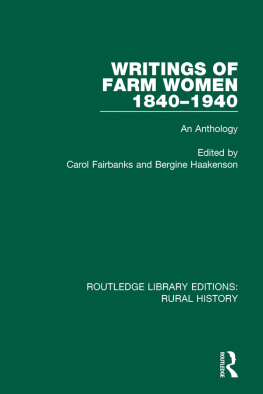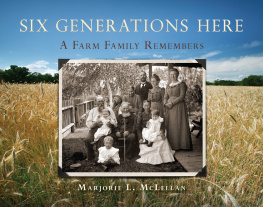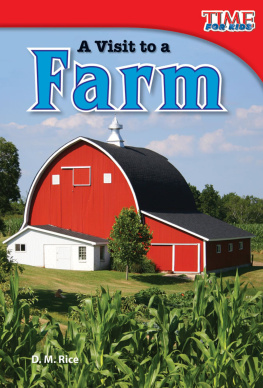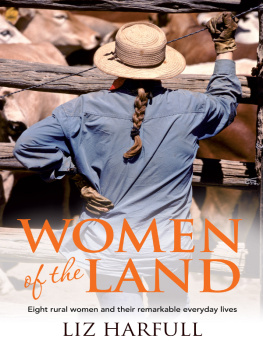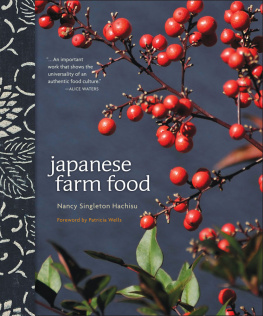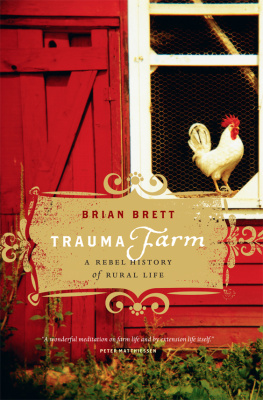ROUTLEDGE LIBRARY EDITIONS:
RURAL HISTORY
Volume 7
WRITINGS OF FARM WOMEN
1840-1940
WRITINGS OF FARM WOMEN
1840-1940
An Anthology
Edited by
CAROL FAIRBANKS
AND BERGINE HAAKENSON
First published in 1990 by Garland Publishing, Inc.
This edition first published in 2018
by Routledge
2 Park Square, Milton Park, Abingdon, Oxon OX14 4RN
and by Routledge
711 Third Avenue, New York, NY 10017
Routledge is cm imprint of the Taylor & Francis Group, an informa business
1990 Carol Fairbanks and Bergine Haakenson
All rights reserved. No part of this book may be reprinted or reproduced or utilised in any form or by any electronic, mechanical, or other means, now known or hereafter invented, including photocopying and recording, or in any information storage or retrieval system, without permission in writing from the publishers.
Trademark notice: Product or corporate names may be trademarks or registered trademarks, and are used only for identification and explanation without intent to infringe.
British Library Cataloguing in Publication Data
A catalogue record for this book is available from the British Library
ISBN: 978-1-138-89481-5 (Set)
ISBN: 978-1-315-11336-4 (Set) (ebk)
ISBN: 978-1-138-05561-2 (Volume 7) (hbk)
ISBN: 978-1-315-16579-0 (Volume 7) (ebk)
Publisher's Note
The publisher has gone to great lengths to ensure the quality of this reprint but points out that some imperfections in the original copies may be apparent.
Disclaimer
The publisher has made every effort to trace copyright holders and would welcome correspondence from those they have been unable to trace.
WRITINGS OF FARM WOMEN
1840-1940
An Anthology
edited by
Carol Fairbanks
Bergine Haakenson
GARLAND PUBLISHING, INC. NEW YORK & LONDON
1990
For
Clara
Linda and Lindsey
and Anita.
C.F.
In memory of
my mother, Ellen,
and my grandmothers,
Anna, Bertha and Bergina.
B.H.
CONTENTS
1990 Carol Fairbanks and Bergine Haakenson
All rights reserved
Library of Congress Cataloging-in-Publication Data
Fairbanks, Carol, 1935
Writings of farm women, 18401940 : an anthology / Carol Fairbanks, Bergine Haakenson.
p. cm. (Garland reference library of the humanities ; vol. 1327)
Includes index.
ISBN 082405170X (alk. paper)
1. Rural womenUnited States. 2. Farm lifeUnited States.
I. Haakenson, Bergine, 1939 . II. Title. III. Series.
HQ1410.F17 1990
305.42dc2090-41452
CIP
Printed on acid-free, 250-year-life paper
Manufactured in the United States of America
The stories of the homesteaders, ranchers, and farm women included in this anthology describe both the ordinary and the extraordinary. The writers discuss farming techniques, flower gardens, needlework, animals, religious beliefs, politics, friendships with Indians as well as prejudices against Indians, childbirth, spouse abuse, schools, and parties. They also describe such situations as near-starvation during a blizzard, the destruction of crops when grasshoppers descend, the mental breakdown of a neighborhood woman, and the dispossession of a farm family during a drought.
Painful experiences, however, are sometimes passed over quickly. Readers must search between the lines to detect disappointments and grief. In both the memoirs and letters, women are apt to soften the edges of a difficult situation, choosing instead to focus on the fact thatin spite of everythingthey survived. And in the process of surviving they learned what one woman called lessons for life. They discovered untapped resources, physical and emotional, within themselves. Elinore Pruitt Stewart found her comfort in nature: instead of being defeated by the deaths of cows and horses, she planted flowers everywhere. Others emerged from traumatic experiences with renewed faith in God. Jennie Osborn proclaimed that stick-to-it-iveness was the determining factor. Well, Jennie says, We stuck. These women do not boast about their ability to endure; at the same time, there is no display of false modesty. Dignity is the dominant tone struck by women who have worked hard and developed self-confidence.
These women are not without their flaws. Both class prejudice and, to a greater degree, racial prejudice are revealed in some of their works. As editors we have chosen to eliminate some disagreeable passages not because we want to present the writers in a better light than they present themselves, but because their unsophisticated generalizations add very little to our understanding of their lives and relationships. Several women placed high value on their friendships with Indians and expressed sincere gratitude for assistance and protection provided by Indian neighbors. Those who used the terms squaw and half breed did not usually do so disapprovingly; these were the words commonly used without thought by settlers at the time. Alice Dahlin Lund described many social visits between the white women and Indian women. Their inability to speak each other's language was not an overwhelming problem. They liked being together to rejoice in the birth of a healthy new baby or to grieve over an infant's death.
Friendships among women form a recurring motif in these narratives. Hilda Rose depended on two types of female relationships. She described the happiness that comes when isolated women took off a day or two to gather in town and work on special projects which would bring relief to an old granny or an overworked farm woman giving birth to yet another baby. She also described the life-line formed by letters from women whom she had never met but who corresponded with her over a period of several years. In fact, her first letter, dated 21 June 1919, begins thus: We are friends now, so we won't stand on ceremony. At last! At last! I am going to have friends who will be glad to see me when I go back to the world for a visit or to stay. Time will tell, but I presume that it will be when I am old and gray.
Another persistent theme emphasizes the commitment of writers to rural life. Hilda Rose suffered enormous worries and frustrations on her little Montana ranch, yet she says it is better to die fasting with a flower in my hand than to live in poverty in a city. Elinore Pruitt Stewart argues that homesteading is the solution of all poverty's problems, although she recognizes that temperament has much to do with success in any undertaking, and persons afraid of wolves and work and loneliness had better let ranching alone. She goes on to say that
any woman who can stand her own company, can see the beauty of the sunset, loves growing things, and is willing to put in as much time at careful labor as she does over the washtub, will certainly succeed; will have independence, plenty to eat all the time, and a home of her own in the end.
In The First Four Years, Laura Ingalls Wilder is quite blunt in her assessment of the hardships endured by farm women, especially during a period of drought such as the one she and Manly faced when they were first married. Nevertheless, she rose to the challenge: It would be a fight to win out in this business of farming, but strangely she felt her spirit rising to the struggle.

